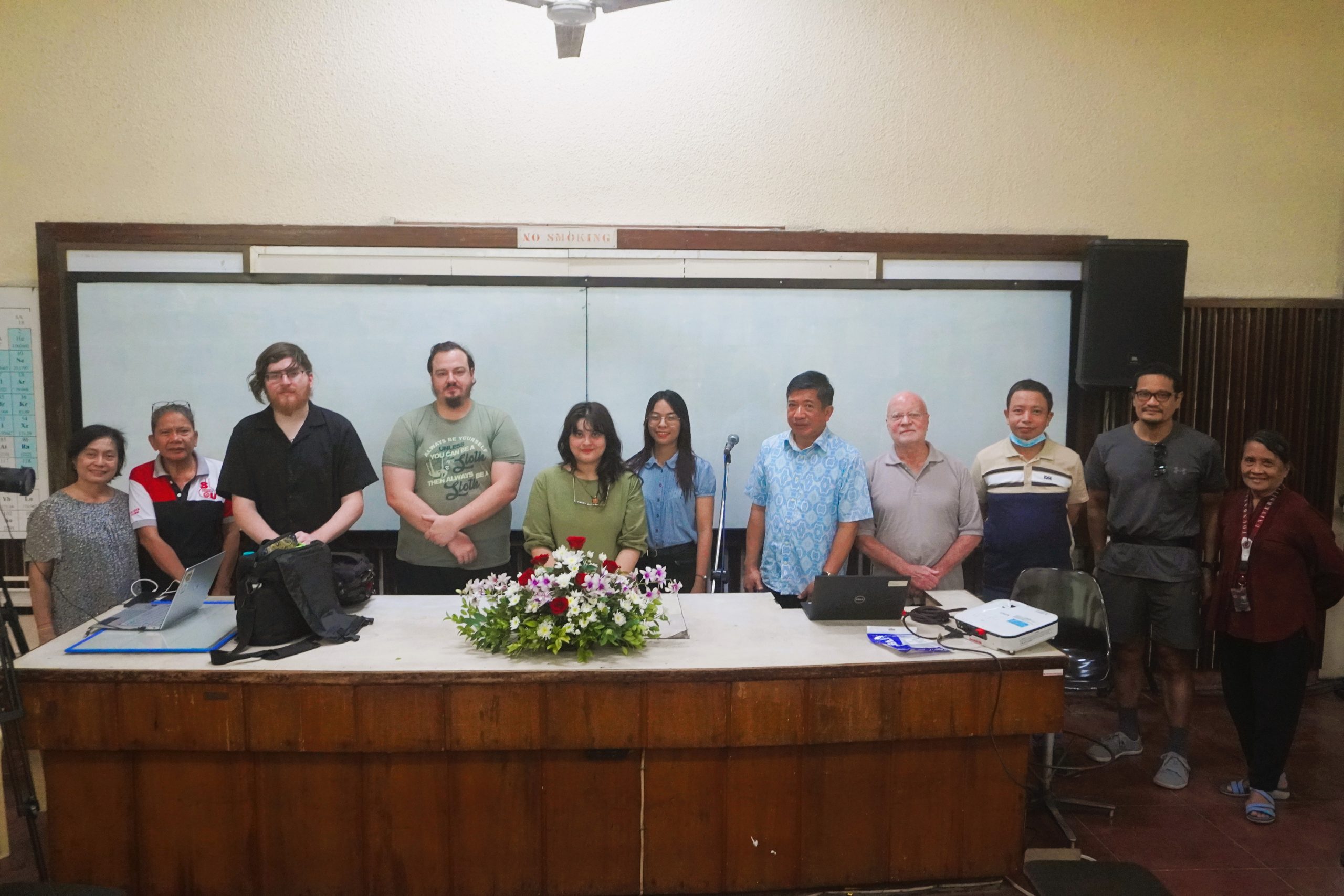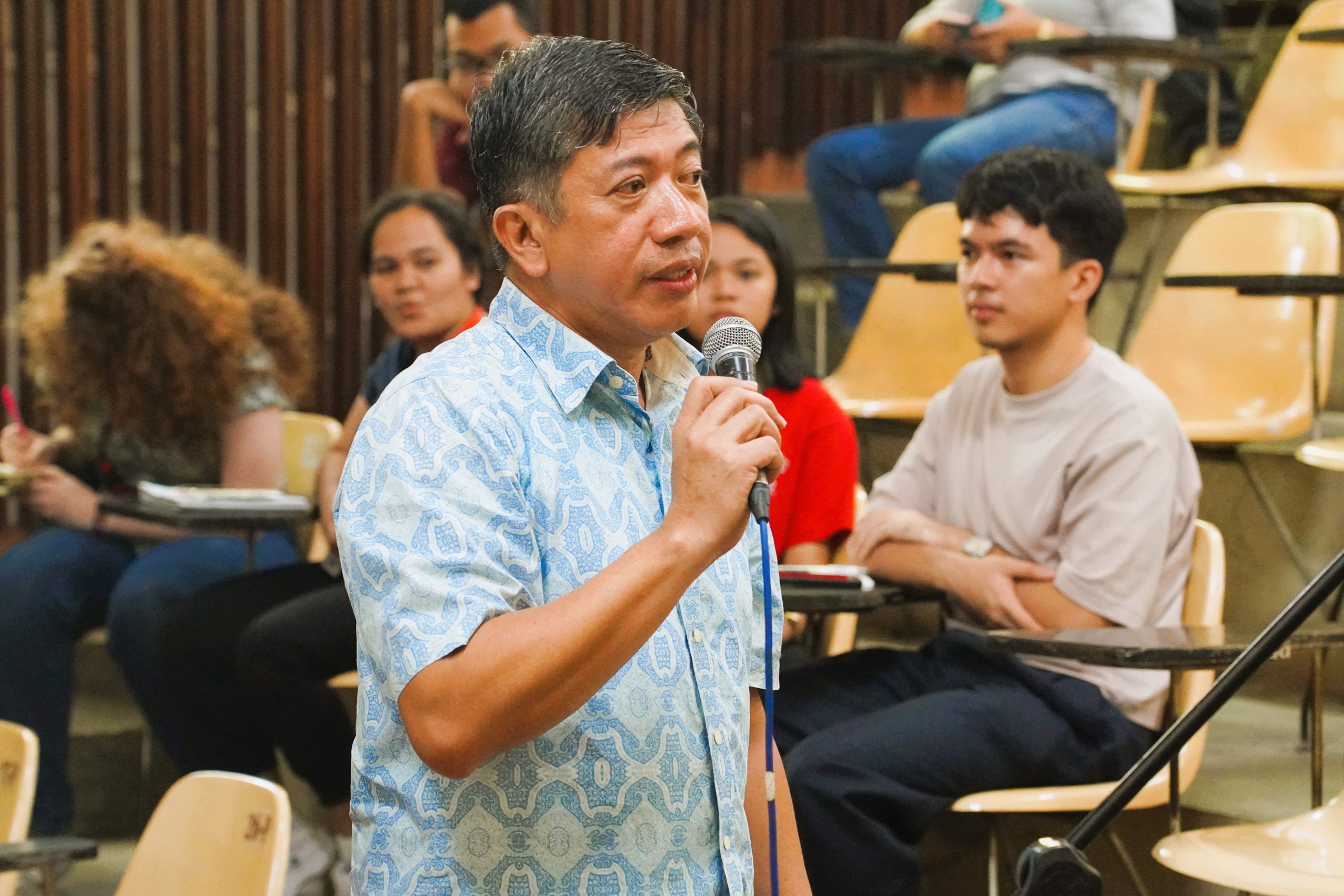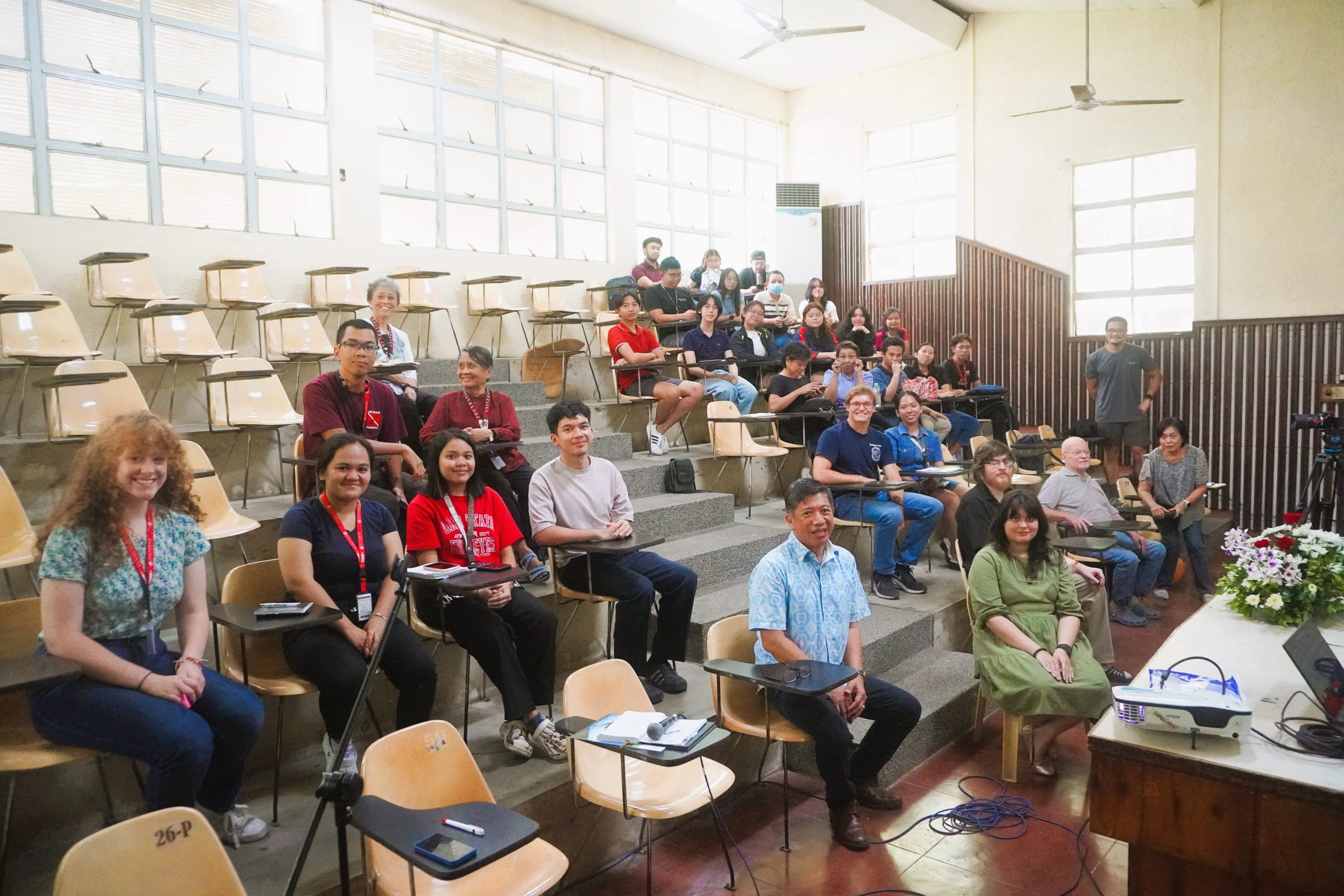
SUAKCREM affiliate, Fulbright scholar presents her ‘Conservation Practices in the Central PH’ study

Angelica “Clover” Talens Robichaud, SUAKCREM affiliate and Fulbright scholar, presents her study titled, “Conservation Practices in the Central Philippines.”
The Silliman University Angelo King Center for Research and Environmental Management (SUAKCREM), under the leadership of Dr. Robert S. Guino-o II, SUAKCREM director, hosted Fulbright scholar and SUAKCREM affiliate Angelica “Clover” Talens Robichaud for a public lecture at SC 111 on June 28, 2024.
Her presentation focused on her extensive study entitled “Conservation Practices in the Central Philippines,” which aimed to determine what conservation measures are being utilized by multiple conservation organizations, the specific criteria that make these measures successful, the negative factors and limitations brought about by these measures, and the circumstances that contribute to their sustainability.
As part of her study, she visited various conservation organizations and assessed their activities and program structure, evaluated their conservation efforts for selected species and migratory birds at two or more distinct sites, and generated a logistical framework analysis about what contributes to and hampers conservation in the country.
Robichaud’s research site in the Central Visayas was strategically chosen due to its diverse ecosystems, encompassing marine areas, wetlands, lakes, riparian zones, and tropical forests within a concentrated geographical area. This region is renowned for its rich biodiversity, housing numerous endangered species such as the Visayan warty pigs, Visayan spotted deer, Negros bleeding-heart pigeons, Philippine freshwater crocodiles, Philippine bare-backed fruit bats, Philippine tarsiers, Cebu hawk owls, black shamas, hawksbill sea turtles, and giant clams, in addition to migratory birds, at locations throughout the islands of Negros, Cebu, Apo, Bohol, Olango, Ponson, and Siquijor.
Meanwhile, these species face multiple threats, including habitat loss, poaching, persecution, entanglement, habitat encroachment, hunting, and pollution, among others.

(Left to right) Emily A. Layos, daughter of the late National Scientist Dr. Angel C. Alcala and SUAKCREM administrative staff; Dr. Paulina S. Aspilla, retired Chemistry Department faculty member; Daniel Piasecki, Robichaud’s partner; Matthew Ward, Talarak Foundation, Inc. executive director; Angelica “Clover” Talens Robichaud, SUAKCREM affiliate and Fulbright scholar; Robert S. Guino-o II, SUAKCREM director; Richard Ebner; Zarujo C. Girasol, Physics Department faculty member; Jasper Leif P. Maypa, SUAKCREM technical staff; and Lourdes Y. Fabro of Foundation University pose for a quick photo.
Supported by SUAKCREM, the Biology faculty of the Silliman Center for Tropical Studies (CENTROP), Talarak Foundation, Inc., and local conservation groups, Robichaud extended her stay in the Philippines to the summer of 2024 to complete her fieldwork. Fulbright initially granted her the scholarship for 2020-2021, which they had to delay for more than a year due to the COVID-19 pandemic. Robichaud eventually received permission to commence her study in May 2022.
Drawing on her 2018 Conservation Research funded by Explorers Club and Seldon K. Smith Endowed Scholarship for Student Global Experience, Robichaud’s existing study aims to document and analyze ongoing conservation efforts across the Visayas.
Guino-o II, in his welcome remarks, emphasized the role of SUAKCREM in the context of Silliman University, which is “to support biodiversity and conservation studies particularly done by the youth.”
“The youth is one of the untapped sectors of the Philippines as a potent mouthpiece for conservation,” he said.

Dr. Robert S. Guino-o II, SUAKCREM director, facilitates the Q&A portion of Robichaud’s presentation.
Robichaud’s journey to the Philippines began with a vision she shared with the late SUAKCREM Chairman Dr. Angel C. Alcala in 2019, when she expressed her interest in applying for a Fulbright scholarship. Having previously studied Biology and Mathematics at Columbia College in South Carolina, Robichaud’s academic background equipped her well for the rigorous demands of ecological research in the Philippines.
Despite challenges posed by the COVID-19 pandemic, Robichaud commenced her study in May 2022, leveraging her Fulbright scholarship to delve into the intricacies of local conservation practices firsthand. Her research has garnered significant support from various individuals and organizations. Key contributors include Gloria Rica Talens, Ma. Socorro Talens Baoy, Rafael Talens, Daniel Piasecki (who traveled from the US), and Vicky Bullanday of the Lalag Bato Marine Sanctuary in Lazi, Siquijor. Their generosity has facilitated Robichaud’s in-depth exploration of conservation efforts across the Philippines.

Participants during Robichaud’s lecture at SC 111 pose for a quick photo.
Furthermore, the collaborative efforts of institutions such as the SU Biology Department, CENTROP, Negros Oriental State University, the Department of Environment and Natural Resources (DENR) Protected Area Management Boards in Apo Island and Balinsasayao Twin Lakes, and several local conservation foundations have also been instrumental in Robichaud’s study.
The Fulbright Program is a cultural exchange program between the U.S.A. and other nations for their citizens to learn from those in other countries and likewise share their skills and talents abroad.
Meanwhile, SUAKCREM, a non-profit research, resource management, and extension unit attached to the Silliman University President’s Office, is directed towards applying research findings to conservation and management problems and increasing sustainable production in marine and terrestrial environments. It is guided by its mission “to conduct research on marine and terrestrial ecosystems and use the findings for proper management of biological resources using participatory approaches.”


